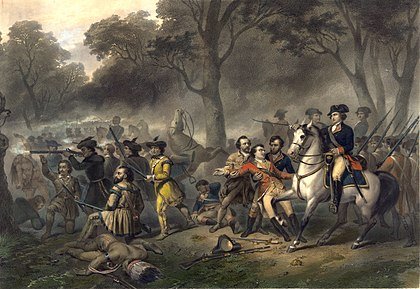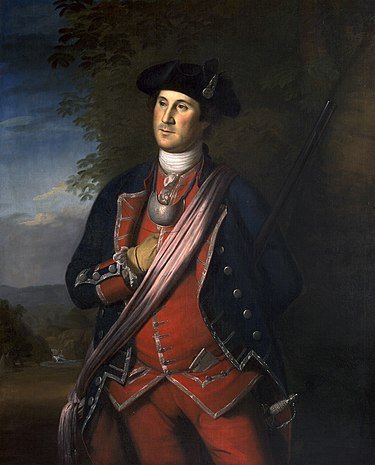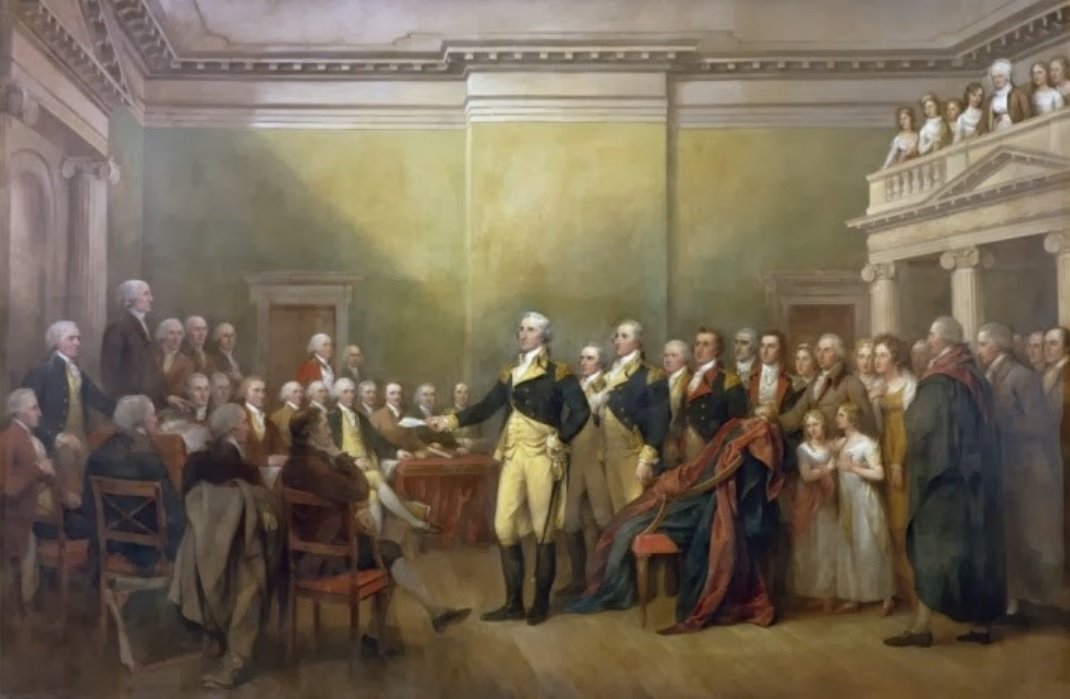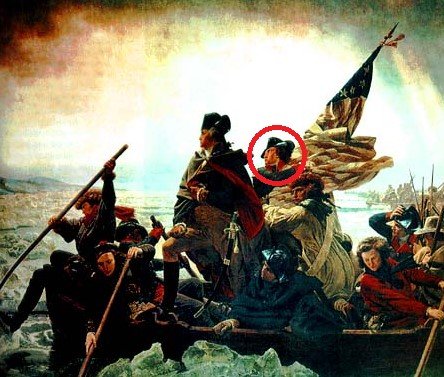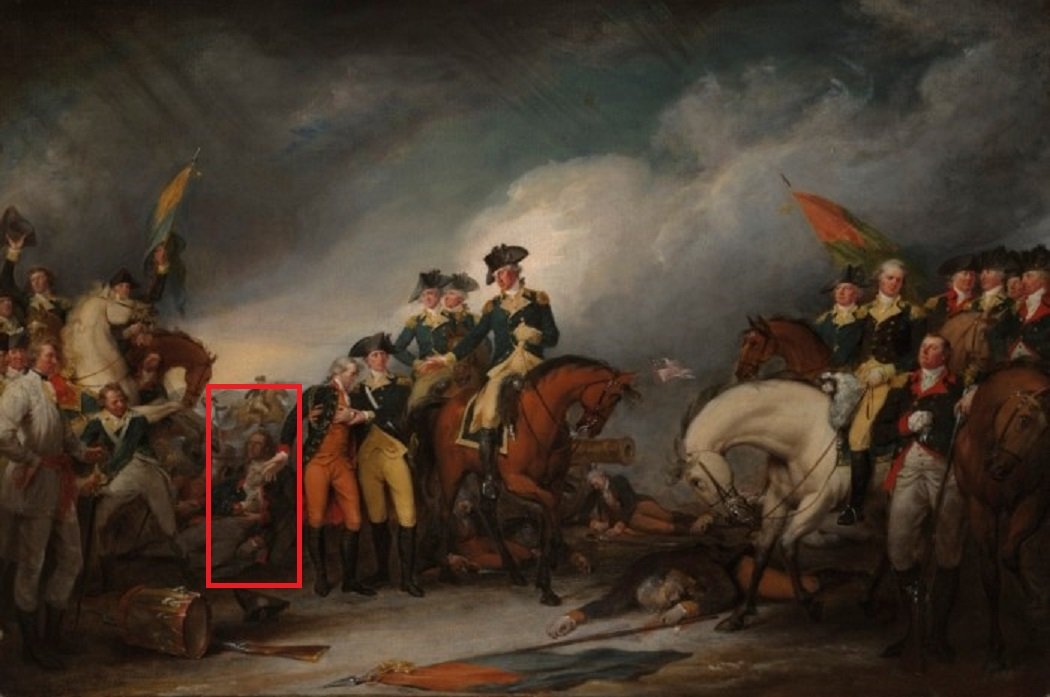Presidents and Military Careers - Part 1
The President serves as the Commander-in-Chief of the United States military. However, military experience is not required to serve as President. More than half of our Presidents had some kind of military service, and many served during wars.
Military experience can burnish a politician’s reputation, particularly if related to combat in a successful campaign.
Founding Fathers
The first five Presidents were Founding Fathers: Washington, Adams, Jefferson, Madison, and Monroe. Only two had military experience, Washington and Monroe. Whether in a military or political position, their role in creating the United States supported their election as President.
George Washington
Washington’s military career began at the onset of the French and Indian War in 1754. His first mission, which involved monitoring the construction of a fort near Pittsburgh, ended with surrender to the French. A subsequent expedition, led by British General Braddock, also ended in disaster as the British force was defeated with heavy casualties. But Washington got credit for his bravery in battle and organizing the retreat. During the fight, Washington had two horses shot from under him. Bullets pierced his hat and coat.
These battles started the French and Indian War. Although the British won that war, it left the British treasury in debt. The English wanted to tax the American colonies to replenish their funds, starting the chain of events that led to American independence.
Based on his military experience in the French and Indian War, the Continental Congress nominated Washington as Commander in Chief in 1775.
From a military perspective, Washington was not a particularly successful general. He lost more battles than he won in the revolutionary war.
During the Revolutionary War, Washington won daring victories at Trenton and Princeton when he crossed the Delaware River and surprising the Hessian soldiers (mercenaries hired by the British). But he also lost key battles on Long Island and New York, allowing the British to capture New York City. He then lost at Brandywine and Germantown in Pennsylvania, resulting in British control of Philadelphia.
Washington was not involved in the Battle of Saratoga, which brought the French onto our side. We owe Benedict Arnold credit for that victory, obviously before he became a traitor. The Battle of Yorktown ending the war was at least as much a French victory as an American one. According to Washington biographer Chernow, the French who saw the opportunity to trap Cornwallis and convinced Washington to move south. The French also provided many troops and supplies for the campaign. And the French navy defeated the British navy in its attempt to relieve Cornwallis.
While Washington may not have been the most successful general, if measured by battles won and lost, he kept the army together through the war, including several harsh winters. He voluntarily stepped down as commander of the army, establishing the principle of civilian control of the military. King George III of Britain was reputed to have said, referring to Washington voluntarily giving up power, “If he does that, he will be the greatest man in the world.” Consider these words, stated by Washington in 1783, when he resigned his military position:
“…I have now the honor of offering my sincere congratulations to Congress, and of presenting myself before them, to surrender into their hands the trust committed to me, and to claim the indulgence of retiring from the service of my country…Having now finished the work assigned me, I retire from the great theater of action; and bidding an affectionate farewell to this august body, under whose orders I have so long acted, I here offer my commission, and take my leave of all the employments of public life.”
Many, perhaps even most revolutions, have ended in violence, such as the French Revolution and the Russian Revolution. Maybe Washington’s simple act of voluntary resignation is a major reason why the United States’ revolution ended peacefully.
Six years later, in 1789, the United States held its first Presidential election. Washington was an obvious choice for president. He was both a national hero and the favorite son of Virginia, the largest state at the time. He won unanimously.
John Adams, Thomas Jefferson, James Madison
John Adams, our second President, was not in the military. Thomas Jefferson and James Madison, our third and fourth Presidents, were both in the militia. But neither was involved in any military action. This did not affect their Presidential elections.
James Monroe
James Monroe was the last Founding Father to serve as President of the United States. He served in the American Revolutionary Army. He was part of the surprise attack crossing the Delaware River to attack the Hessians (German mercenaries hired by the British) in Trenton. He is included in the famous painting of Washington crossing the Delaware (circled in red). This was painted in 1851 and is housed at the Metropolitan Museum of Art in New York City. (It is not historically accurate; Monroe was in a different boat, and the crossing was in the middle of the night, there was no light). Monroe was severely wounded in the battle and was lucky to survive a bullet severing an artery in his shoulder. He carried the bullet in his shoulder for the rest of his life. The Yale University Art Gallery has a painting showing Washington with the dying Hessian Colonel. Monroe is shown wounded on the left of the picture (noted in red).
Monroe won re-election in 1820, running unopposed. Imagine a time when the country was so unified. One ‘faithless’ elector denied Monroe a 100% electoral college victory. Unconfirmed legend has it that he wanted to ensure that Washington remained the only president to win unanimously.
Summary:
The first five Presidents of the United States were Founding Fathers. Two, Washington and Monroe, had significant military careers. The other three, Adams, Jefferson, and Madison, did not. Either way, all five were elected President based on their role in creating the United States.
In our next entry, we will examine Presidents who served in the War of 1812.
